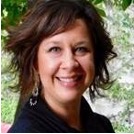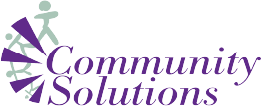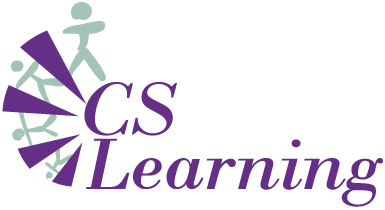June 2021
Pathways to Resilience: HR Leader Finds Compassion for Self by Sharing Compassion with Others
Jeff Jacobs knew something was wrong when a routine sprained ankle triggered symptoms of a heart attack. He’d known for years that he lived with a generalized anxiety disorder, but as a senior human resources professional, he’d built his career on sweating details, pushing himself to do better, and caring about others’ needs more than his own. It took a fall down the stairs—and an ambulance ride to the ER—to realize that his own struggle mattered too.
The COVID-19 pandemic has disrupted the work place unlike any event in modern history, catapulting employee mental health and wellness to the top of the agenda for today’s Chief Human Resource Officers (CHROs) all over the world, and fundamentally changing the relationship between employers and employees.
“Mental health, purpose and social responsibility are now critical components of the (employer) value proposition,” and employee experience is ranked as the top priority for HR leaders in 2021, according to a 2020 Gartner survey of more than 800 HR leaders across 60 countries and all major industries. So, today’s employees are coming forward to share their needs and their stories like never before.
This is one of them.
We spoke with Jeff about the mental health challenges he has faced, how he has learned to understand and manage them, and how helping others with their growth and resilience has helped his own.
In addition to his role as Director, Organizational Effectiveness at Adobe, Jeff is active in organizations dedicated to prison, retreat and music ministry, advocacy and empowerment programs for individuals with disabilities (Project HIRED), and the advancement of the human resources profession. He is currently enrolled in a Stanford University program studying applied compassion and mindfulness. Jeff is also a board member of Community Solutions who prior to Covid, spent two days each month providing music for clients who have experienced emotional or psychiatric episodes through one of our residential programs.
Melissa Santos, Community Solutions: Tell us who you are and a little bit about your career.
Jeff Jacobs: My career always starts with the purpose behind it, and that’s my family. I’ve been married for 30 years, and my two sons are 26 and 21. Over the course of my career in HR, I’ve held roles from talent acquisition to business partnership, employee relations to performance management, learning and development to my current passion – organizational effectiveness, in which I work with senior leadership teams on tailored engagements and interventions covering team effectiveness, change management, and leadership development.
MS: We all have strengths, and we all face challenges along the journey of life, but you had an unexpected challenge.
JJ: While it is something I have faced my entire life, a “wake-up call” of sorts came about 16 years ago. I was experiencing extra stress at work—ironically, the positive kind, since I’d just been promoted. I was going to be overseeing a good-sized team, and it was very exciting for me. Then, I started questioning whether I was really up for it. I reached out to the company’s employee assistance program, thinking I’d have a couple of counseling sessions to come up with some coping mechanisms to help me be successful in this new role. It soon became clear that the stresses that I was experiencing were not typical, and could be linked back to my early childhood.
Even though I had received a lot of positive feedback in my career, I’d always felt like what I was producing was never good enough. It was the same dynamic growing up, around grades, friends, even chores and hobbies. Those first few counseling sessions turned into many, and then into referrals, and ultimately a diagnosis of generalized anxiety disorder with obsessive compulsive tendencies.
Working in HR, I’d taught a lot of people about growth mindset and the power of feedback, but practicing these things myself was very hard because I was operating from a place of tremendous insecurity.
MS: How did this condition impact your life?
JJ: I was carrying more anxiety on a regular basis, and I didn’t know it. I was always trying to solicit the approval of the people around me, frequently to the point that it was hard to discern my own voice in the process. Trying to please everyone was a recipe for disaster. Perhaps because her love was unconditional, my wife was frequently and unfairly deprioritized – the worst possible thing I could do, and something I am trying to make up to her and my kids to this day.
Ironically, there were silver linings when it came to work. I found that I had this overdeveloped sense of empathy, which enabled me to be a better coach and facilitator to the people around me. It became a passion for me to tap into the people I was working with and be able to take the conversation wherever it needed to go. It’s probably one reason that I seek out trying to be of service to others through compassion work and ministry—it helps me move the focus from myself to other people and alleviate some of the anxiety as well. It’s ironic that activities like public speaking, performing music, and even walking into maximum-security prisons actually ease my anxiety.
MS: So, your pathway to resilience came out of these silver linings, in a sense. Often resilience isn’t about putting yourself in an uncomfortable situation to try to push against the grain, but rather getting into the flow and allowing that flow to be part of the healing and coping.
JJ: There was a time when I was reaching out to a group of peers for book recommendations, and Lisa de Silva from Community Solutions suggested a book by the Dalai Lama and Desmond Tutu called the Book of Joy. It referenced Stanford’s compassion program, which I ended up enrolling in for an 11-month certification, and one of the epiphanies that came to me is how foreign the concept of self-compassion was for me.
A past client of mine practiced yoga and mindfulness regularly, and she talked to me about the power of just calming your mind. She challenged me to see how long I could sit without doing anything. I lasted seven minutes. That was about ten years ago, so coming back to this idea of mindfulness now, and realizing just how challenging it is, and how challenging self compassion is—that’s part of the resilience that I’m building.
MS: You can show up as this compassionate, empathetic person that can connect so well with people, but at the same time there’s a cost when it becomes all that matters. How do you balance that out now, being able to give to others while also having self-compassion?
JJ: It’s incredibly hard to balance because I had, and still have, so many blind spots. Of course, we all do. Illuminating them is part of my work. My blind spots came at a cost to relationships and family. I could get defensive and shut down in the face of criticism, which frequently felt personal. And my needs and the needs of my wife and children were frequently trumped by what I perceived as the more “urgent” demands and expectations of work or extended family.
It’s funny, when I got my diagnosis, I thought, “okay, generalized anxiety; I’ll take some pills so I don’t feel as much stress.” Not being someone who focused on self-compassion, I never even Googled the disorder. I never even looked into OCD. I thought, “so I make lists, whatever.” And I sat with that diagnosis for about 10 years before I was forced to look at how it influenced my behaviors along the way. Ironically, some of this made me more successful at work, but some of it also hindered me, at home and at work. I’m still trying to find that middle ground.
MS: And what a gift to yourself, the awareness that there are blind spots. I hear so much curiosity about yourself in those blind spots, and in the way that you’re describing the journey that you’re on.
JJ: I firmly believe that the best gift I’ve given myself in the last six months or so is my focus on living in the present. By virtue of my struggles, I was perpetually rehashing past things that I didn’t think went well, as if there was some way to go back in time and change the outcome. Or I was rehearsing for the future so that I could be prepared for these situations that may or may not even come up. And the present got sacrificed in the process. I’ll never get that back. Being now more focused on the present makes things a lot easier and gives me the confidence to have a conversation like this with you. I’m more secure; I feel less at risk. Age helps, too.
And the word risk is key because I’ve had numerous conversations with trusted confidants about whether I was making a mistake to go public with this. Would I lose out on certain opportunities if I was seen as not up to the task? Or would it seem like an excuse or rationalization? Years ago I probably wouldn’t have done it, but now, this is more important.
Last summer a friend of mine encouraged me to speak about my experience and offered a unique avenue by which I could do that. When we had this conversation, it was shortly after George Floyd was killed, and Asian hate crimes were rising. I couldn’t wrap my head around the idea that a successful middle aged white guy is going to complain about a little stress in his life. So, I turned her down. Then, I shared this thinking with a dear friend of mine who has spent her life in a wheelchair, and she slapped me around and said “this isn’t a competition.” She stressed that I can reach people that others might not be able to by virtue of my experience. So, a few months later I was invited to speak on a panel on mental health and anxiety. I still didn’t trust my own judgment, still needed external validation, which I got from two other friends with disabilities who convinced me that I needed to do this.
It was just a half-hour panel, and it went by in the blink of an eye, but much to my amazement, we had over 800 people tune in. So many people reached out and thanked me for the vulnerability and appreciated the validation that they were not alone. Given my role as a facilitator and executive coach, it wouldn’t have occurred to them that this is what was going on—you know, this calm duck on the surface of the water, paddling like crazy underneath. That feedback gave me the courage to say “I don’t want to stop.”
MS: Sometimes vulnerability has a negative connotation because if we’re vulnerable we might be at risk of attack, but it’s also at the heart of human connection. So many people who struggle with things get caught in a place of, “who am I to complain compared to all these others who can’t even meet their basic needs?” But, we’re all a part of showing up as our most authentic, most vulnerable, most honest selves—that helps the greater whole.
JJ: In all the organizational engagements I’ve facilitated over the years, I don’t know if there’s one that’s gone by in which I haven’t used the word vulnerability. And, you know, shame on us if we haven’t created the psychological safety and the trusting environment people need to feel that. A lot of companies talk about bringing your whole self to work, but we have to create an environment where we’re comfortable doing that. It’s the employee’s responsibility to own and drive their own career, and it’s the manager’s responsibility to create the environment where those meaningful conversations can take place.
The only way you can learn and grow is if you admit you have space to learn and grow. As long as I’m hiding that or don’t feel safe with that, I can’t make that progress. I have a manager at Adobe who I was able to have this conversation with, and he encouraged me to speak publicly on the topic. He was willing to advocate on my behalf, to try to be a leader and create a place where others can come forward as well.
MS: Why now?
JJ: Well … when Covid-19 sent us all home, we all brought with us additional stresses that we may or may not have realized. Add to that race relations, political divisiveness, and personal issues, and I tried to shoulder those extra stressors, without giving it much thought. Then, in July of last year, I took a wrong step coming down our stairs and sprained my ankle. I hobbled to the couch and immediately started getting hot flashes, sweating, tingling in my arms and legs, and heart palpitations. My body effectively said, “enough!” I had to turn to my sons and tell them to call 911 before I passed out because I was exhibiting all the signs of a heart attack. An ambulance brought me to the emergency room, and it turned out I’d had a panic attack—first one since I was seven years old. And, that made me say, “I need to look at this more seriously, I guess. I need to explore this. I need to understand this.” And, it was at this time that my friend invited me to talk about this publicly. An opportunity presents itself, one thing leads to another, and all of a sudden there’s too much momentum to turn back.
MS: I appreciate so much your trusting this space to be safe enough to share. Too many people who don’t feel that sense of safety—they feel like they could risk their careers talking about this stuff at work. Companies give the message to bring your whole self to work, but then also give the message of leave your personal stuff at the door. And, we know that none of that stuff really gets left behind—it might get stuffed in a closet, but it comes out one way or another.
JJ: All of a sudden, people have more permission to talk about it. You see all the conferences and papers about wellness, mental health and taking care of ourselves, and suddenly we’re mainstream. But, we still need to do better. We need to take care of the people in our workforce. It’s not just about humanity—given the challenges in hiring and retention, it’s become an absolute business necessity.
MS: There might be people reading this who are at the beginning of their own journeys. How can people take their lives and mental health into their own hands in a way that helps them feel better even if their workplace circumstances aren’t ideal?
JJ: It’s a great question. It’s very easy for someone to say, “you need to take care of yourself,” but there are many different aspects to that—physical and emotional and mental, but also financial. Not everyone has the luxury of knowing they can always get another job. So some people are working in environments where they can’t afford to bring their whole selves to work because it will put them at real risk. They end up having to balance that risk, and the pain to their internal selves, with the security of providing for themselves and their families. People do need to take care of themselves, but the risks associated with revealing yourself at work are real, and we have to be very careful about how we do that.
But, they can hopefully still seek out support, whether from trusted friends, or through an employee assistance program like I did, or in a therapeutic environment like Community Solutions—there are ways of getting help without forcing it to be forefront in their work environment.
There’s a desire and temptation to have that relationship with your manager where you can confide, but working in human resources, I’ve been in plenty of rooms with conversations questioning whether someone is up to a job. Sometimes you know you have to choose what’s the right thing. I’ve been passed up by people who had been my peers, or people who’d been more junior than me, and that hurts my ego a little. But, I also recognize that that’s not me talking—that’s a voice in my head about what society might think – that success is a competition exclusively about climbing the corporate ladder. Professional titles and advancement may be part of success, but there is so much more! I’m learning to better discern my own voice and define what success is for me. Ironically, as much as my “self-talk” has caused me pain over many years, it has also helped me gravitate to people, roles, and organizations that allow me to be myself, and be of service to others. There is an expression in my faith circles – “You can’t outgive God.” What this means to me is that every time I try to help someone else grow, develop and build their own resilience, I end up further building my own.
What challenges and struggles have you faced, and what experiences, insights, and practices have helped you build resilience?
 Over his 30+ year career, Jeff Jacobs has held a variety of HR leadership roles across Retail, Healthcare, Higher Education, and Technology. He is thrilled to currently be serving as Director, Organizational Effectiveness for Adobe, as well as on the Boards of Project HIRED and Community Solutions. Jeff is married with two children, and also devotes time to music, retreat and prison ministry.
Over his 30+ year career, Jeff Jacobs has held a variety of HR leadership roles across Retail, Healthcare, Higher Education, and Technology. He is thrilled to currently be serving as Director, Organizational Effectiveness for Adobe, as well as on the Boards of Project HIRED and Community Solutions. Jeff is married with two children, and also devotes time to music, retreat and prison ministry.
Outside of his family, his greatest joy comes from helping individuals and teams identify and address obstacles to their happiness, productivity and success.
As a board member of Community Solutions, Jeff helps others on their own pathways to resilience, just as Community Solutions does for thousands of children, teens, adults, and families in times of crisis each year throughout Santa Clara and San Benito counties.
 Melissa Santos is passionate about breaking the stigmas that surround mental health, addiction and domestic violence. She seeks opportunities to bridge the gaps between communities and cultures and build empathy, understanding and resilience through the common experiences and trauma that bind us.
Melissa Santos is passionate about breaking the stigmas that surround mental health, addiction and domestic violence. She seeks opportunities to bridge the gaps between communities and cultures and build empathy, understanding and resilience through the common experiences and trauma that bind us.
Melissa is Senior Director of Professional Development and Organizational Initiatives at Community Solutions in Santa Clara County, CA overseeing internal clinical training, leadership development, community-based training and strategic initiatives. She also provides consultation services to small nonprofits and foundations in strategic planning and organizational development. She has over 20 years of experience in the behavioral health field and is a national trainer and CA Lead of the Celebrating Families! evidence-based curriculum for families impacted by addiction. Melissa has been a member of the Santa Clara County Touchpoints training team for over 10 years and facilitates training, conference workshops and webinars on trauma-informed care, mindfulness, recovery and organizational leadership throughout the country.



